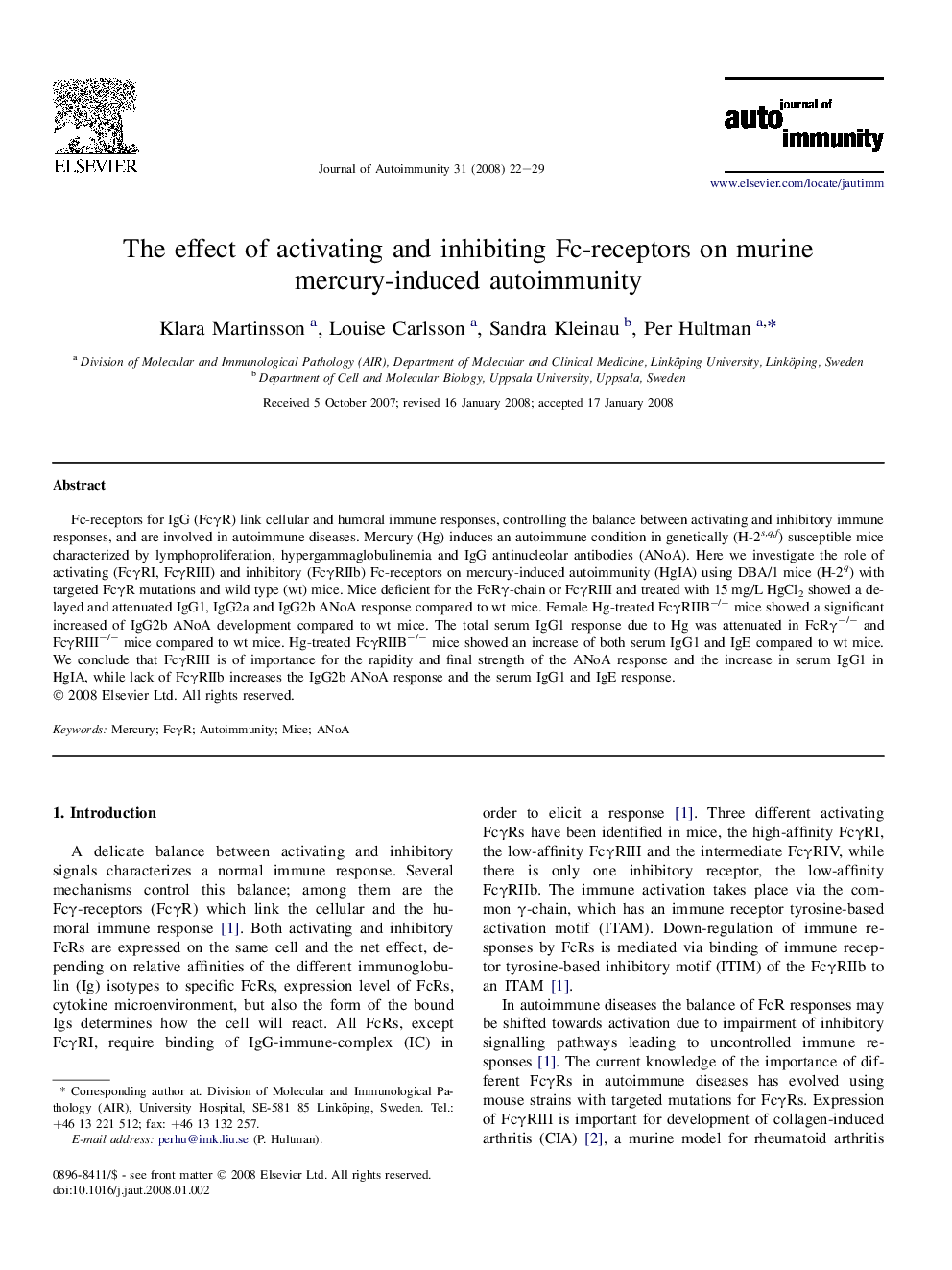| Article ID | Journal | Published Year | Pages | File Type |
|---|---|---|---|---|
| 3368224 | Journal of Autoimmunity | 2008 | 8 Pages |
Fc-receptors for IgG (FcγR) link cellular and humoral immune responses, controlling the balance between activating and inhibitory immune responses, and are involved in autoimmune diseases. Mercury (Hg) induces an autoimmune condition in genetically (H-2s,q,f) susceptible mice characterized by lymphoproliferation, hypergammaglobulinemia and IgG antinucleolar antibodies (ANoA). Here we investigate the role of activating (FcγRI, FcγRIII) and inhibitory (FcγRIIb) Fc-receptors on mercury-induced autoimmunity (HgIA) using DBA/1 mice (H-2q) with targeted FcγR mutations and wild type (wt) mice. Mice deficient for the FcRγ-chain or FcγRIII and treated with 15 mg/L HgCl2 showed a delayed and attenuated IgG1, IgG2a and IgG2b ANoA response compared to wt mice. Female Hg-treated FcγRIIB−/− mice showed a significant increased of IgG2b ANoA development compared to wt mice. The total serum IgG1 response due to Hg was attenuated in FcRγ−/− and FcγRIII−/− mice compared to wt mice. Hg-treated FcγRIIB−/− mice showed an increase of both serum IgG1 and IgE compared to wt mice. We conclude that FcγRIII is of importance for the rapidity and final strength of the ANoA response and the increase in serum IgG1 in HgIA, while lack of FcγRIIb increases the IgG2b ANoA response and the serum IgG1 and IgE response.
